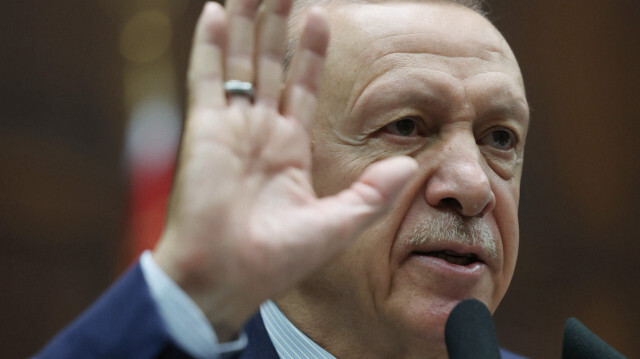
PKK supporters in Sweden continue to organize demonstrations, recruit people, finance terrorist groups, Erdogan tells Germany's Scholz
It is “unacceptable” for Ankara that PKK supporters in Sweden organize demonstrations and recruit people and provide financial support for terror groups, the Turkish president said on Wednesday.
His remarks came during a phone conversation with German Chancellor Olaf Scholz, according to a statement by the Turkish Communications Directorate.
Erdogan and Scholz addressed bilateral relations as well as regional and global issues, stressing the necessity of increasing cooperation in these fields.
The Turkish president told Scholz that Sweden is taking steps in the right direction, citing Stockholm’s recent anti-terrorism, but said Ankara finds it “unacceptable” that the YPG/PYD/PKK supporters in Sweden continue to organize demonstrations, recruit people, and provide financial support to terrorist groups.
Finland and Sweden applied for NATO membership soon after Russia launched its war on Ukraine in February 2022. Although Türkiye approved Finland's membership to NATO, it is waiting for Sweden to abide by a trilateral memorandum signed last June in Madrid to address Ankara's security concerns.
Several NATO allies, including the US, hope Türkiye will approve Sweden's accession process ahead of a summit in the Lithuanian capital, Vilnius, set for July 11-12.
Sweden passed an anti-terror law in November hoping Ankara would approve its bid to join NATO. The law, effective June 1, allows authorities to prosecute individuals who support terror groups.
- Wagner rebellion
The Turkish and German leaders also discussed the latest developments in Russia, with no details provided in the statement.
The Russian Wagner Group accused Russian forces last Friday of attacking its fighters and subsequently crossed from Ukraine into the Russian city of Rostov-on-Don.
In response, the Federal Security Service initiated a criminal case against the group for armed rebellion.
Russian President Vladimir Putin labeled the uprising an act of “treason.”
The group's leader, Yevgeny Prigozhin, said his fighters would proceed to Moscow. That prompted the Kremlin to enhance security measures across various regions.
Prigozhin later claimed his fighters decided to turn back to avoid bloodshed when they were about 200 kilometers (124 miles) from Moscow.

